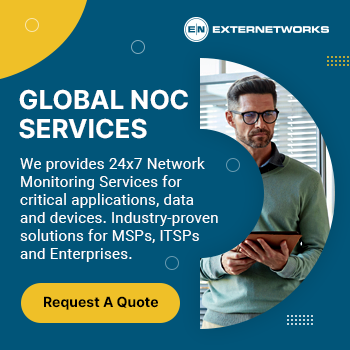Choosing the Right IT Field Services Provider: A Guide for Businesses

Are you a business in need of IT field services, but unsure of where to start? Choosing the right provider is crucial for the success of your business operations. With so many options available, it can be overwhelming to make a decision.
IT field services providers offer a range of services, from network support to hardware maintenance, to ensure that your systems are running smoothly. However, not all providers are created equal, and choosing the wrong one can lead to costly mistakes and downtime for your business.
Finding the right IT field services provider is essential for your business’s smooth functioning. When making your decision, consider factors such as expertise, reliability, and cost. This guide is designed to help businesses choose the right provider for their specific needs.
Understanding IT Field Services
IT field services encompass a crucial aspect of modern technology management, facilitating the deployment, maintenance, and support of IT infrastructure directly at client locations. This specialized branch of IT operations plays a pivotal role in ensuring the smooth functioning of technology-dependent businesses across various industries.
Scope and Responsibilities:
IT field services involve a broad spectrum of responsibilities, typically including:
- Installation and Deployment: Setting up hardware, software, and network components at client sites according to specifications.
- Maintenance and Upgrades: Performing regular maintenance tasks, troubleshooting issues, and implementing upgrades or updates to ensure optimal performance and security.
- Support and Troubleshooting: Resolving technical issues reported by users, which may involve diagnosing hardware or software problems remotely or on-site.
- Training and Guidance: Providing training sessions or guidance to users on how to operate and maintain their IT systems effectively.
Key Components:
- Remote Diagnostics and Monitoring: Utilizing remote tools to diagnose and resolve issues without physical presence, optimizing efficiency and reducing downtime.
- On-Site Visits: Physical visits to client locations for tasks that require hands-on attention, such as hardware installations or complex troubleshooting.
- Documentation and Reporting: Maintaining detailed records of installations, repairs, and maintenance activities, which helps in tracking the status of equipment and providing insights for future improvements.
- Customer Service: Interacting directly with clients to understand their IT needs, address concerns promptly, and ensure high levels of satisfaction.
Challenges and Solutions:
- Logistics: Managing logistics effectively to ensure timely delivery of services and equipment to diverse locations.
- Security: Implementing robust security protocols to protect sensitive data and systems during on-site visits and remote operations.
- Skill Diversification: Field service technicians often require a broad skill set encompassing hardware, software, networking, and customer service skills.
- Adaptability: Staying updated with evolving technologies and methodologies to meet changing client needs and industry standards.
Importance in Business Operations:
IT field services are critical for businesses that rely heavily on technology. They offer immediate support and expertise that remote troubleshooting may not always suffice. They bridge the gap between centralized IT support and end-users, ensuring that businesses can operate smoothly without interruptions caused by technical issues.
In essence, IT field services play a vital role in enhancing operational efficiency, maintaining system reliability, and fostering positive client relationships in today’s interconnected digital landscape. As technology continues to evolve, the role of IT field services remains indispensable in supporting businesses’ technological infrastructure and ensuring seamless functionality.
Key Factors to Consider When Choosing an IT Field Services Provider
Businesses heavily rely on IT infrastructure to drive operations, enhance productivity, and deliver services to customers. Consequently, choosing the right IT field services provider is a critical decision that can significantly impact a company’s efficiency and success. Here are a few steps to consider while selecting the ideal IT field services provider for your business needs.
1. Assess Your Business Requirements
Before embarking on the search for an IT field services provider, it’s crucial to have a clear understanding of your business’s specific needs. Conduct a thorough assessment of your current IT infrastructure, identify pain points, and define the scope of services you require. Consider factors such as:
- Type of IT Services Needed: Determine whether you need hardware support, software maintenance, network management, cybersecurity, or a combination of these services.
- Volume and Frequency: Assess the volume of IT support you need and how frequently you’ll require these services.
- Geographic Coverage: Consider whether you need local, regional, or national coverage.
- Budget Constraints: Define your budget and any financial constraints that may impact your choice of provider.
2. Research Potential Providers
With a clear understanding of your needs, start researching potential IT field services providers. Look for companies with a strong reputation, extensive experience, and positive customer feedback. Utilize online resources, industry forums, and professional networks to gather information and create a shortlist of potential providers.
3. Evaluate Technical Expertise and Experience
Technical expertise and experience are paramount when selecting an IT field services provider. Ensure that the provider has a team of certified and experienced professionals capable of handling your specific IT requirements. Consider the following:
- Certifications and Training: Verify that the provider’s technicians hold relevant certifications, such as CompTIA A+, Cisco Certified Network Associate (CCNA), or Microsoft Certified Solutions Expert (MCSE).
- Industry Experience: Look for providers with experience in your industry, as they will be more familiar with the unique challenges and regulatory requirements you may face.
- Case Studies and References: Request case studies or references from similar businesses to gauge the provider’s track record and ability to deliver quality services.
4. Assess Service Level Agreements (SLAs)
Service Level Agreements (SLAs) are crucial documents that outline the scope of services, performance metrics, and responsibilities of the IT field services provider. Carefully review and assess the SLAs to ensure they align with your business needs. Key elements to consider include:
- Response Times: Ensure that the provider can meet your required response times for different types of issues, such as critical system failures or routine maintenance.
- Resolution Times: Look for commitments on issue resolution times to minimize downtime and disruptions.
- Performance Metrics: Evaluate the performance metrics outlined in the SLA, such as system uptime guarantees and customer satisfaction targets.
- Penalty Clauses: Check for penalty clauses in case the provider fails to meet the agreed-upon service levels.
5. Evaluate Flexibility and Scalability
Your business needs may evolve over time, so it’s essential to choose an IT field services provider that offers flexibility and scalability. Ensure that the provider can adapt to changes in your IT requirements and can scale their services to accommodate business growth. Consider:
- Scalability: Can the provider easily scale their services up or down based on your changing needs?
- Customizable Solutions: Does the provider offer customizable service packages that can be tailored to your specific requirements?
- Flexibility in Contracts: Look for providers that offer flexible contract terms, allowing you to adjust services without significant penalties.
6. Assess Communication and Support
Effective communication and support are critical for a successful partnership with an IT field services provider. Evaluate the provider’s communication channels, support processes, and customer service quality. Consider the following:
- Communication Channels: Ensure that the provider offers multiple communication channels, such as phone, email, and live chat, for quick and easy access to support.
- Support Availability: Check the availability of support services, including whether they offer 24/7 support for critical issues.
- Customer Service: Assess the provider’s customer service quality by reading reviews, requesting references, and evaluating their responsiveness during the evaluation process.
7. Consider Security and Compliance
Security and compliance are critical considerations when selecting an IT field services provider. Ensure that the provider follows best practices for data security and complies with relevant industry regulations. Evaluate the following:
- Security Policies: Review the provider’s security policies and procedures to ensure they align with your business’s security requirements.
- Compliance: Verify that the provider complies with industry regulations and standards, such as GDPR, HIPAA, or PCI-DSS, depending on your industry.
- Data Protection: Ensure that the provider has robust measures in place to protect your data, including encryption, secure data centers, and regular security audits.
8. Evaluate Cost and Value
While cost should not be the sole determining factor, it’s essential to evaluate the cost and value of the services provided. Consider the following:
- Transparent Pricing: Look for providers that offer transparent pricing models with no hidden fees.
- Value for Money: Assess the overall value for money by comparing the cost of services with the quality and breadth of services provided.
- Return on Investment: Consider the potential return on investment (ROI) from improved efficiency, reduced downtime, and enhanced IT performance.
9. Request a Trial Period
Before committing to a long-term contract, consider requesting a trial period or a pilot project to evaluate the provider’s performance and compatibility with your business. This allows you to assess their service quality, responsiveness, and ability to meet your needs in a real-world scenario.
10. Review and Finalize the Agreement
Once you have selected a provider, review and finalize the agreement carefully. Ensure that all terms and conditions are clearly defined and documented. Seek legal advice if necessary to protect your business interests.
Conclusion
Choosing the right IT field services provider is a strategic decision that can have a lasting impact on your business’s operational efficiency and growth. You can find a provider that aligns with your business needs by carefully considering factors such as expertise, range of services, response time, reputation, security measures, cost, technological innovation, and cultural fit. Following a structured selection process will further enhance your chances of a successful partnership. Remember, the goal is not just to find a provider but to find a partner who will support and enhance your business’s IT infrastructure, enabling you to focus on your core operations with confidence.
to Contact Us




